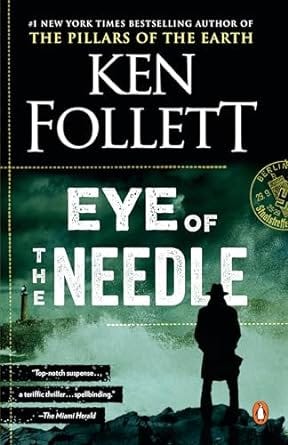“He was standing in front of the radio with some sort of screwdriver in his hand.”
It’s possible — not easy but possible — to make a bad book out of nothing but first-rate sentences. The glittering, shallow novels of Martin Amis come to mind; maybe half of the novels written by one-time poets. But can you make a good book — something not just compelling but enduring — out of bad sentences?
It depends on what you mean by bad. There’s a kind of badness (Da Vinci Code badness, let’s call it) that is so obtrusive, so thorough-going, that any reading pleasure is overridden by an automatic and involuntary impulse to edit (Do you really want to start by telling us that the curator was “renowned”?).
But there’s another kind of badness that’s more forgivable and can even be charming; it’s a bland but functional badness, the badness of Saltines eaten straight from the sleeve; the badness of bricks — each one rough and replaceable — that are equally at home propping up a dorm bed and filling in a Louis Kahn arch. This is the badness of the sentences from which Ken Follett’s Eye of the Needle is made. There isn’t in the whole book a phrase to savor, but neither is there a page that doesn’t accomplish some crucial bit of structural business. Readers will be enjoying Follett’s meticulously engineered brick archways long after his glass-and-steel neighbors (beloved by renowned curators) have been reduced to shards.
Eye of the Needle, published in 1978 and later turned into a Donald Sutherland movie, is about a plot by the Allies to deceive the Nazis about the location of the D-Day invasion. The book’s protagonist, unusually, is its villain, Henry Faber, a German spy of terrifying calm and efficacy. He learns of the Allies’ plot, and the main action of the book — the part that will have you driving your partner insane with your bedside light — is his race to get that information to the Germans before a gang of plucky Brits can stop him.
When we first meet Faber, he is working as a railway clerk, living in a London boarding house. He’s a ferociously sober man (“He was very fit for his age, which was thirty-nine, although he lied about it; he lied about most things, as a precaution,”) but his landlady, Mrs. Garden— a lonely, blowsy widow out of Fawlty Towers — has developed a crush on him.
One night Mrs. Garden has a few drinks (“She had a nice face and fair curly hair, and there was something for a man to get hold of… She giggled at that thought. She must be getting tiddly”) and decides to go up to his room and make a move. She puts on a pink nightdress, grabs her skeleton key, and heads upstairs.
She tried [the door] gently. It was locked.
The radio was turned down and Mr. Faber called out, “Yes?”
…
She said, “Can I have a word with you?”
He seemed to hesitate; then he said: “I’m undressed.”
“So am I,” she giggled, and opened the door with her duplicate key.
He was standing in front of the radio with some kind of screwdriver in his hand.
Anyone who’s ever interrupted a crime — or read a book — knows that this isn’t going to end well for Mrs. Garden. And indeed it doesn’t.
She took a step forward, and then his arms went around her and she closed her eyes and turned up her face, and he kissed her, and she moved slightly in his arms, and then there was a terrible, awful, unbearable sharp pain in her back and she opened her mouth to scream.
This is Follett at his most lyrical, and it isn’t bad — the swoony romance-novel rhythms of the first half of the sentence set up the violent surprise of the end. But the sentence that I love — and that seems to me more quintessentially Follett-esque — is the earlier and humbler one, the one that makes clear that violence is inevitable.
He was standing in front of the radio with some kind of screwdriver in his hand.
Don’t let the plainness of the writing here obscure the craft. That some kind of screwdriver reminds us that we’re still bound to Mrs. Garden’s consciousness; by keeping us in the close third person, Follett ensures that when she is surprised by being stabbed, so will we be.
But you don’t, after reading a sentence like this, remember the phrasing. You remember the moment. Faber — fastidious in his spy-craft — has been caught; we know that he uses the radio to communicate with the Germans. A good plot builds to a point where a character we care about is well and truly screwed — trapped in a room, say, with a weapon-bearing Nazi who cannot, as a matter of professionalism, let her live. This sentence, a mere ten pages into the book, is such a point.
As a linguistic object it’s well-made but plain. As a piece of mechanical engineering it’s faultless.




This reminds me of the Orwell essay, "Good Bad Books." You can now read his terrific essays online. https://www.orwellfoundation.com/the-orwell-foundation/orwell/essays-and-other-works/good-bad-books/
A chilling, unforgettable novel and movie. Crucial criteria for a summer (re)read.